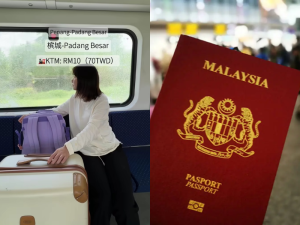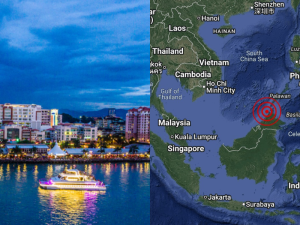
Image credit: AFP
Malaysia Airports Holdings Bhd (MAHB) will roll out a month-long Comprehensive Action Plan (CAP) until December 15 to strengthen the reliability and resilience of the KL International Airport Aerotrain system. The initiative uses the remaining defects liability period (DLP) to systematically address existing weaknesses through a multi-phase strategy.
MAHB managing director Datuk Mohd Izani Ghani said the plan, endorsed by the Transport Ministry and acknowledged by the Land Public Transport Agency (APAD), will begin with nightly checks and repair works from 9pm to 7am to minimise inconvenience to travellers.
Rebuilding public confidence in the KLIA Aerotrain services
He said the initiative marks a firm step towards rebuilding public confidence by combining structured planning, regulatory support, and transparent communication.
“Our priority is to ensure the Aerotrain meets the reliability and safety standards expected of a major international hub like KLIA.
“This plan gives us a clear pathway to tackle the root causes behind previous disruptions while reaffirming our commitment to passenger safety and service quality,” he said during a media briefing.
Supplementary bus services fully provided during CAP
During the CAP period, full bus services will be provided to maintain seamless connectivity between the main terminal and the satellite buildings. To further reduce the need for transfers, more flights will operate from the main terminal, he added.
Developed with the involvement of appointed contractors and consultants, the CAP consists of three stages, each designed to systematically identify and rectify system vulnerabilities.
Stage one focuses on identifying system flaws, resolving underlying issues, carrying out planned technical and software upgrades, and conducting detailed inspections of the entire train system.
Stage two involves validation through simulated operational tests and targeted enhancements such as software improvements, component recalibration, and real-time stress testing to strengthen system stability.
“The final stage will consist of monitored trial operations to verify system readiness and operational reliability before full services are reinstated,” he said.
An independent assessor will also be brought in to conduct full technical and operational audits for added assurance, while APAD will carry out a formal safety inspection once the plan is completed.
CAP deadline subject to extension beyond December 15
On whether the CAP may extend beyond December 15, Mohd Izani said any extension will be decided after completing stages one and two.
“We still do not know how many days will be needed for the trial operations. We will update the media periodically if an extension is required,” he said.
Since resuming operations on July 1, the KLIA Aerotrain has transported roughly seven million passengers and completed more than 53,000 return trips, achieving a service availability rate of 98.41 per cent.
Follow Wah Piang for more.
Source: Bernama





